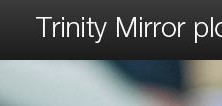
(Credit: Wikipedia/grassrootsgroundswell)
Even though the claims that the Momo meme led to child suicides were revealed as a hoax, the Sun‘s article reported on those claims wasn’t problematic, the UK press regulator the Independent Press Standards Organisation ruled.
The meme, which went viral earlier this year, showed what Vox described as a “demonic chicken lady” rumored to scare children to self-harm. That claim was later debunked, and the image proved to be a photograph of a sculpture. The Sun declined to comment to iMediaEthics beyond its defense to IPSO.
The Sun‘s February article, “MOMO SLAVES Just a few seconds glimpse of sick Momo meme could haunt kids lives and control their behaviour psychologist warns,” reported a psychologist’s comments about concerns that the “Momo” meme upset children and that suicides in Argentina and India had been linked to the image
A reader complained to IPSO over the article arguing it was inaccurate since the claim Momo was linked to suicides was bogus. IPSO, however, rejected the complaint.
The Sun defended its article as reporting on claims and not definitively saying Momo led to deaths. IPSO agreed that the Sun was “entitled” to report on the claims and the psychologist’s perspective. Further, IPSO noted that the Sun attributed fact versus claims.
“Publications are entitled to report claims and speculation, so long as they take care to present them as such…The article did not adopt these claims as fact and took care to present the accounts of parents who believed their children had seen the Momo character as such,” IPSO ruled.





